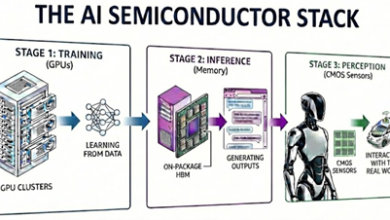
The healthcare AI conversation is saturated with elaborate predictions and dramatic headlines about revolutionary breakthroughs. But after two decades of implementing technology solutions across complex, regulated industries, I’ve learned that it’s more useful to look at where AI is already making measurable contributions, and what pain points it’s alleviating. Operational AI, particularly in patient nutrition and safety, is quietly driving some of healthcare’s most immediate and impactful changes.
The Unglamorous AI That Actually Works
The most effective AI implementations aren’t flashy. Beyond diagnostics, it powers meal personalization, dietary compliance, and inventory control behind the scenes. Together, these applications show that operational AI is a present-day driver of efficiency and safety, resulting in dining operations that are not only more efficient but also more responsive to customer needs and less wasteful. According to research, the U.S. could face a shortage of about 100,000 nurses by 2028, alongside broader staffing challenges. This demonstrates that foodservice automation will be essential to the AI-powered nutrition engines.
AI in the Kitchen, Safety on the Plate
Food safety and nutrition management represent a sweet spot for healthcare AI because it combines high-stakes patient safety with complex logistical challenges that technology can solve elegantly. AI-driven systems now track dietary restrictions, manage allergen protocols, and optimize meal production to directly improve patient outcomes. By cross-referencing dietary orders with medical histories, these systems flag conflicts before meals leave the kitchen, turning AI from a tool into a safeguard. AI forecasting also reduces waste and improves access to safe, personalized meals, especially since healthcare facilities generate over 288,401 tons of food waste annually. For patients, it means better nutrition, for providers, fewer risk and greater efficiency.
The Real-World Challenges of AI
Despite these successes, AI in healthcare still faces hurdles. Even the most advanced algorithm is ineffective if it can’t integrate with existing workflows across departments. Challenges often stem from underestimated change management needs, whether integrating with legacy systems or new platforms. Electronic health record integration, staff training, challenges with trust and governance, and workflow redesign often prove more challenging than the AI deployment itself. This tension between innovation and regulation is a recurring theme in healthcare AI adoption.
Intentional Implementation of a Powerful Tool
AI’s success depends less on the complexity of the tool, and more on a deliberate, unified approach to implementation. The most effective AI deployments start with clearly defined operational pain points. Whether the goal is reducing food waste in hospital cafeterias or improving medication accuracy, the best results come from solving specific problems rather than finding problems for AI to address. Over the next decade, AI is poised to act as the nervous system of healthcare operations, not replacing human judgment, but providing real-time intelligence that enables better, faster decisions.


